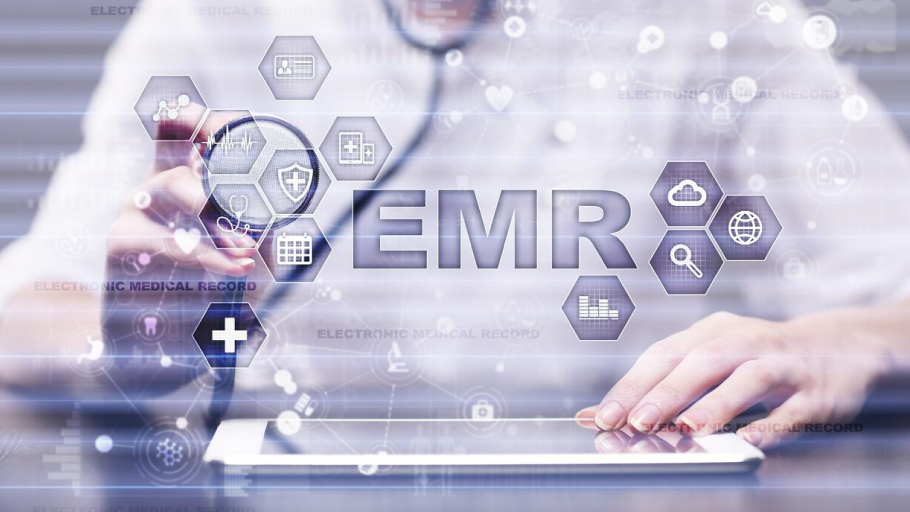The Importance of Electronic Medical Records (EMR) in Modern Healthcare
Introduction
In today’s rapidly evolving healthcare landscape, the use of electronic medical records (EMRs) has become indispensable. Gone are the days of traditional paper-based medical records. The advent of EMR systems has revolutionized the way medical data is captured, stored, and shared.
What is Electronic Medical Records (EMRs)?
Electronic Medical Records (EMRs) are digital versions of a patient’s medical history, diagnoses, medications, treatment plans, and other relevant healthcare information. They serve as a centralized repository for healthcare providers to store, access, and manage patient data in an electronic format. The primary role of EMRs is to facilitate the storage, retrieval, and sharing of medical information to support effective patient care.
Overview of Key Components and Functionalities
EMR systems consist of various components and functionalities that enable efficient management of patient data. These include:
Patient Demographics: EMRs capture and store essential patient information such as name, age, gender, contact details, and insurance details.
Medical History: EMRs maintain a comprehensive record of a patient’s medical history, including past illnesses, surgeries, allergies, immunizations, and family medical history. This information helps healthcare providers gain a holistic understanding of the patient’s health status.
Clinical Notes: EMRs allow healthcare professionals to document clinical encounters, including symptoms, physical examinations, diagnoses, treatment plans, and progress notes. These notes serve as a chronicle of the patient’s healthcare journey and provide valuable insights for future reference.
Medication Management: EMRs facilitate accurate and up-to-date medication management by maintaining a list of prescribed medications, dosages, frequencies, and potential interactions. This feature helps prevent medication errors and supports medication reconciliation.
Laboratory and Imaging Results: EMRs integrate with laboratory and imaging systems to capture and store test results, including blood tests, radiology reports, and pathology findings. This functionality enables easy access to diagnostic information for timely decision-making.
Decision Support Tools: Modern EMR systems often incorporate clinical decision support tools, such as drug interaction alerts, allergy warnings, and evidence-based guidelines. These tools assist healthcare providers in making informed decisions and adhering to best practices.
Interoperability: EMRs support interoperability, allowing the secure exchange of patient data between different healthcare providers, hospitals, and clinics. This seamless data sharing promotes continuity of care and reduces duplication of tests and procedures.
Key Features of Modern EMR Systems
Contemporary EMR systems offer several features that enhance usability, efficiency, and patient care. Some key features include:
User-Friendly Interface: EMR systems have intuitive interfaces that facilitate easy navigation and data entry, enabling healthcare providers to quickly access and update patient information.
Customization Options: EMR systems can be customized to meet the specific needs and workflows of healthcare organizations. This flexibility ensures that the system aligns with the preferences and requirements of healthcare providers.
Integration with External Systems: Modern EMR systems integrate with other healthcare systems, such as pharmacy systems, billing systems, and e-prescribing platforms, to streamline processes and improve efficiency.
Mobile Access: Many EMR systems offer mobile applications or web-based portals, allowing healthcare providers to access patient data securely from mobile devices, enabling convenient and timely care delivery.
Data Security and Privacy: EMRs prioritize data security and privacy by employing encryption techniques, user access controls, audit trails, and adherence to privacy regulations, ensuring the confidentiality of patient information.
Analytics and Reporting: EMRs can generate reports and provide data analytics capabilities, enabling healthcare organizations to monitor key performance indicators, identify trends, and support quality improvement initiatives.
Conclusion
EMR systems play a crucial role in modern healthcare by digitizing and centralizing patient data. They offer a range of components and functionalities that streamline information management, improve patient care, and enhance the efficiency of healthcare providers. With ongoing advancements in technology, EMR systems continue to evolve, empowering healthcare organizations to deliver higher quality and more personalized care to patients





